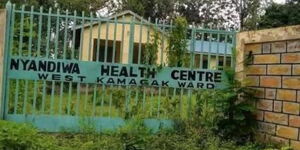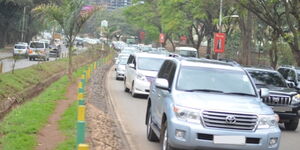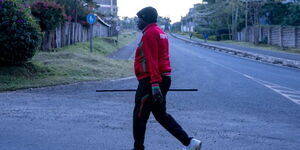Kenya's Covid-19 cases on Wednesday, June 24 rose to 5,206 after 254 individuals tested positive.
The results were drawn from a total of 4,859 samples tested in 24 hours with Nairobi registering the highest number of cases.
During the daily Covid-19 briefing at Afya House, Health CAS Mercy Mwangangi stated that 41 patients had been discharged, bringing the number of recoveries to 1,823.
Two patients succumbed to the disease over the same period bringing the total number of fatalities to 130.
All the positive cases are Kenyans, with 186 being males and 68 females. The youngest is four years old and the oldest 92 years.
The distribution of cases in counties is as follows; Nairobi (127), Mombasa (36), Migori (29), Kajiado (22), Kiambu (12), Busia (9), Uasin Gishu (5), Muranga (3), Machakos (2), Nakuru (1), Kakamega (1), Siaya (1), Taita Taveta (1) Garissa (1) and Isiolo (1).
In Nairobi County, the cases are from; Westlands (32), Dagoretti North (18), Lang'ata (16), Kamukunji (14) and Embakasi East (12).
Mombasa cases: Mvita (11), Jomvu (8) with Kisauni and Likoni recording five (5) each.
Suna East has the highest caseload in Migori County, while in Kiambu County, Thika and Kiambu Town both recorded four (4) cases each.
In Busia County, Teso South recorded 7 cases while for the cases in Uasin Gishu County three (3) are from Ainabkoi while Turbo and Kesses have reported one (1) case each.
Machakos County cases were reported in Matungulu (1) and Athi River (1).
CAS Mwangangi noted that the risk of contracting Covid-19 in Mombasa is the highest in Kenya.
She further addressed the home care guidelines where she disclosed that eligible patients for the home-based program must be assessed by a healthcare worker, be confirmed as COVID-19 positive, and also be asymptomatic, or with mild symptoms of the virus.
"Such patients should be free of any underlying conditions. Asymptomatic patients put on the home-based program will be discharged at least 14 days from the date of their first COVID-19 test, a period during which they should not have symptoms," Mwangangi conveyed.
CAS Mwangangi stated that the focus of the home-based training was to build capacity at the household's level to take care of COVID-19 patients at home.
She referenced other community bases structures, such as Nyumba Kumi and Community Health Committees to ensure compliance with these protocols.
{"preview_thumbnail":"/files/styles/video_embed_wysiwyg_preview/public/video_thumbnails/p5bASmbz6Uk.jpg?itok=r_lscCwn","video_url":"","settings":{"responsive":1,"width":"854","height":"480","autoplay":0},"settings_summary":["Embedded Video (Responsive)."]}












